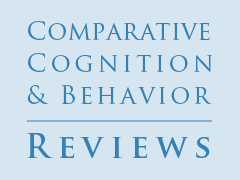What Can We Learn About Navigation From Associative Learning?
Reading Options
Abstract
The many cue types that animals are able to use for both long- and short-scale navigation have been studied extensively, and a well-researched literature has developed into the strategies that have evolved to exploit information provided by these different cues. Less well understood are questions of how animals select different cues to learn about, and the conditions for learning based on these cues. These queries have tended to concern psychologists interested in the extent to which the principles of associative learning apply to spatial learning. The question is of interest because the predictions of associative learning theories are often at odds with spatial learning theories, which instead tend to emphasize the special types of representation and learning process necessary for navigation. Here I examine spatial learning from an associative perspective, starting with the question of what kinds of associations are formed in associative learning and how these may fit within our knowledge of spatial learning. I then examine the conditions of learning, including the effects of prior experience on spatial learning in terms of both latent inhibition and perceptual learning, changes to the attention paid to spatial stimuli as a result of their predictive history, and the extent to which redundancy — when multiple cues predict same outcome — affects learning. The effects are illustrated mostly with examples from the associative learning literature, which is often with rodents or pigeons. But where possible, I have demonstrated similar effects in more diverse species and have tried to indicate the general learning effects that associative learning theories predict.
Keywords: spatial learning, associative learning, cue competition, cognitive map, geometry

